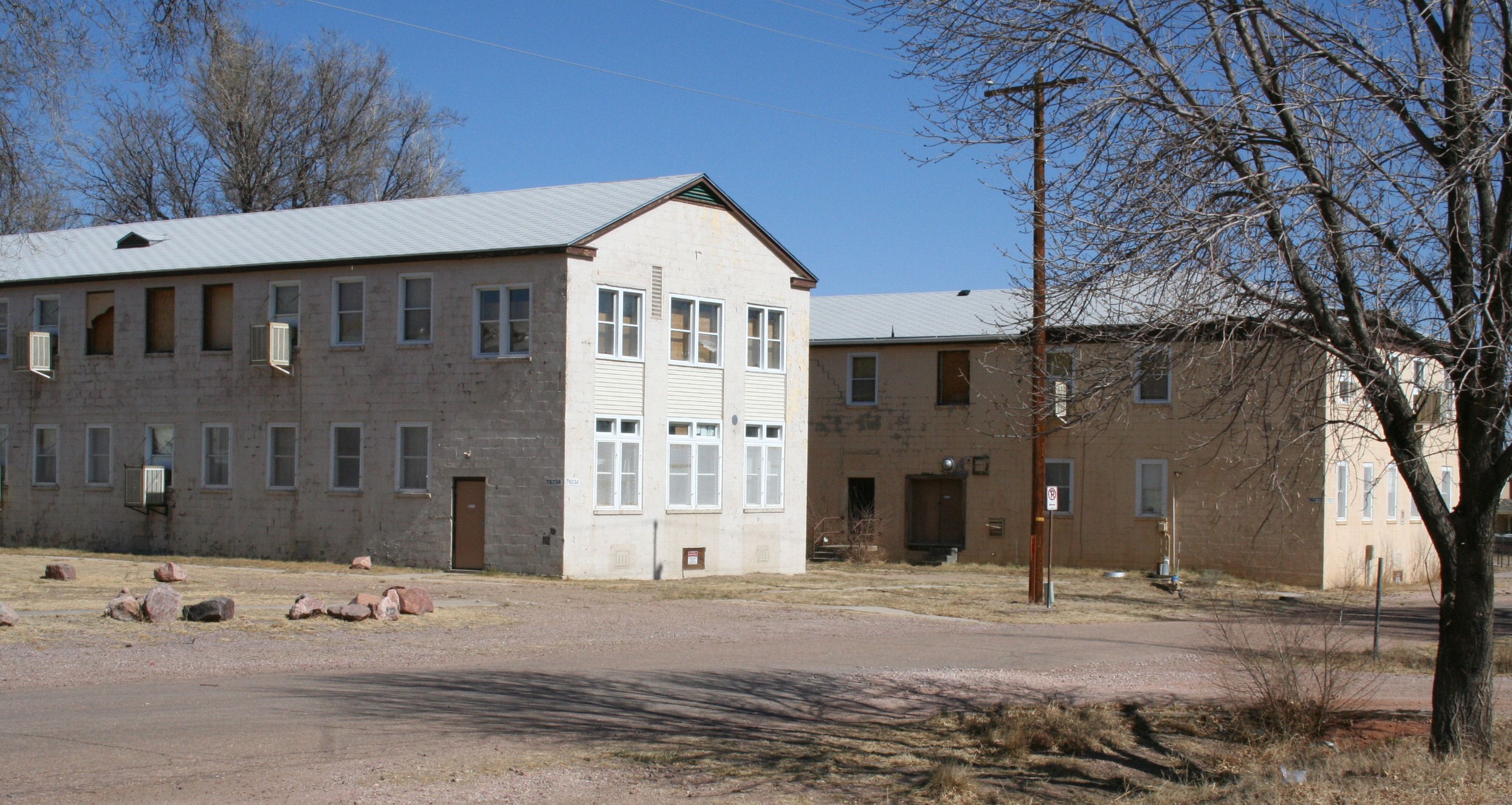FORT CARSON, Colo. -- One brick wall and wood beam at a time, building deconstruction is gaining ground as an attractive alternative to traditional demolition of old buildings past their prime.
Deconstruction provides Fort Carson large-scale recycling opportunities where valuable building materials are reused, thereby supporting installation sustainability efforts to reduce waste going to landfills.
A recent example of deconstruction success was building 6220, part of the World War II-era old hospital complex, where 93 percent of the building materials, including cinder blocks, cement, steel, wood and fixtures, were dismantled and accepted by local vendors and recyclers.
Deconstruction of the building, completed in February, yielded more than 600 tons of reusable materials, said Dave Martin, Directorate of Public Works environmental protection specialist, who provided technical matter expertise on the project. Only seven percent, or 45 tons, of the materials were deemed not recoverable and disposed of at a landfill.
Wood waste recovered from building 6220 went to a local company that shreds wood for use as mulch. The building concrete filler and cinder blocks were shipped off for reuse locally as concrete material on other projects.
Traditional demolition - or "smash and haul" - brings with it a host of costs including landfill disposal, truck fuel and tipping fees. Additionally, any building materials containing lead and asbestos increase the cost of both deconstruction and demolition due to regulatory cleanup and disposal requirements established for regulated waste. The exterior paint on building 6220 contained lead and asbestos that required cleanup, as well as some interior areas before the building materials could be shipped off site to vendors.
Martin calculated deconstruction of building 6220 cost $13,750, yielding an estimated 10 percent savings over standard demolition and disposal of materials at a landfill. From a long-term perspective, added Martin, putting waste materials in landfills adds decades of uncalculated monitoring costs to ensure water leaching from the disposal site does not contaminate groundwater sources.
Through the deconstruction of building 6220, a cost-comparison is now available for the remaining seven old hospital complex buildings slated for deconstruction in the next five years.
Fort Carson initially conducted pilot deconstruction efforts in 2004 for three buildings. The main materials recovered from building 6286 at the time included high-value wood from beams, flooring and trusses. Other materials recovered from building 6286 included reusable fluorescent light fixtures, ceiling tiles, windows, lighting and plumbing fixtures, scrap metal and more than 500 glass window blocks. Deconstruction of two primarily wooden structures, buildings 227 and 226, yielded approximately an 80 percent diversion rate. At the end of the three building pilot project, a total of 280 tons of material was diverted from going to a landfill.
The Directorate of Family and Morale, Welfare and Recreation opted to deconstruct the Cheyenne Shadows Golf Course Clubhouse, building 7800, to build a new, more sustainable clubhouse in 2005. According to the contractor, the effort yielded an 88 percent diversion rate for concrete and 85 percent for other non-concrete materials saved from the building, including lumber, metal, windows, wiring, lighting, ceiling tiles and mechanical equipment.
The market for used recycled building materials is more robust now than when the initial three buildings were deconstructed in 2004. Primary building materials of the old hospital complex buildings, cinder blocks, are accepted by vendors for reuse and create a greater waste diversion rate for Fort Carson to achieve its goal of zero solid waste generated on the installation.
"At Fort Carson we strongly believe in sustainable practices and doing the right thing for our environment and the Colorado Springs community," said Carlos Rivero-deAguilar, DPW Environmental Division chief, "Deconstruction projects not only allow us to meet Department of the Army solid waste diversion, recycling and sustainability goals but also support the local economy with the right types of projects."


Social Sharing